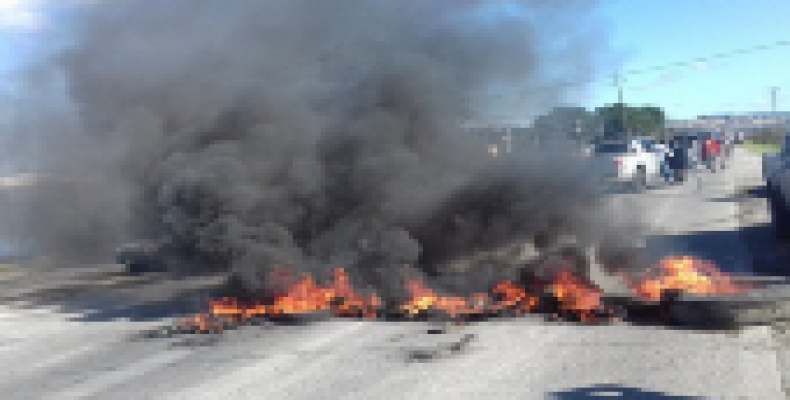Santiago de Chile, May 5 (RHC-teleSUR)-- Chilean fishermen have begun an indefinite strike and cut access to the island of Chiloe, located about 650 miles south of the capital Santiago, since they were banned from fishing and selling the local seafood contaminated by a toxin known as red tide or algal blooms.
The fishermen completely isolated the island of Chiloe by blocking three strategic roads, demanding a quick and concrete response from authorities after two months of what they consider unproductive negotiations. They point out that the regional government was not clear enough about how it will find the funds to address the crisis. Mapuche communities living on the island's seashore also joined the protest.
President Michelle Bachelet declared a state of emergency in 11 towns in the province, while banning artisanal fishermen from selling seafood because of red tide, a phenomenon closely linked with warmer ocean temperatures caused by El Niño.
Although thousands of fishermen have been heavily impacted by the natural phenomenon, the government will only allocate compensation funds to 500 families of fishermen. Many employees in seafood restaurants were also dismissed as a result of the crisis.
Scientists from the University of Chile warned Sunday that this year, the red tide was “the most extended and most serious” the island had ever faced, while the paralyzing toxin had already sickened 11 residents who ate contaminated seafood. A total of 23 people have died from the toxin since 1992.


